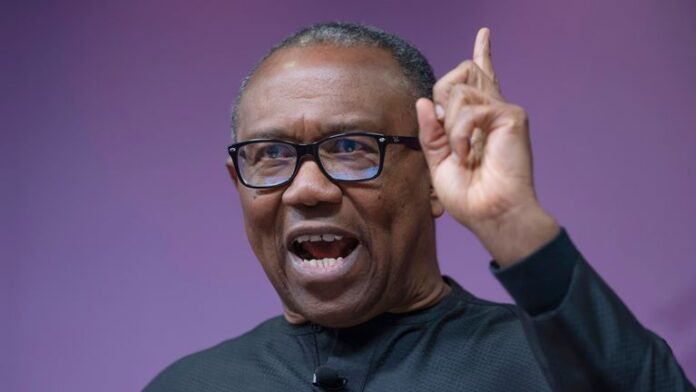Peter Obi, presidential candidate of the Labour Party (LP) in Nigeria’s 2023 elections, has sharply criticised the federal government’s decision to spend a whopping ₦142.02 billion on the construction of modern bus terminals across the country. Obi says the move is another example of how the government continues to misplace priorities in the face of Nigeria’s deepening health crisis.
The Federal Executive Council (FEC) on August 14 approved the funds for the construction of one ultra-modern bus terminal in each of the six geopolitical zones in Nigeria. The Minister of Transportation, Sa’idu Alkali, who announced the approval, said the project is the first direct investment by the federal government in transport infrastructure outside of road construction. According to him, the bus terminals are meant to enhance passenger comfort, improve safety, and boost economic activity.
However, Peter Obi has described the initiative as a poor use of limited public resources. He argues that it makes little sense to spend more on bus terminals than on hospitals, especially at a time when millions of Nigerians are struggling to access basic healthcare.
In a statement on Friday, Obi said:
“The difference between the success and failure of development in any nation is how you prioritise your scarce resources.”
He pointed out that the entire 2024 budget for all federal teaching hospitals and federal psychiatric centres across Nigeria is less than ₦100 billion—significantly lower than the ₦142 billion allocated for bus terminals.
Obi, a former governor of Anambra State, stressed that while transport infrastructure is important, the decision to spend such a huge amount on terminals shows a lack of strategic focus and good leadership. He noted that Nigeria’s healthcare system is in urgent need of investment, and the government’s actions reflect a failure to understand what Nigerians truly need.
“This is disturbing, considering that health is one of the most critical areas of development, which is deteriorating and remains grossly underfunded,” he said.
Obi further reminded Nigerians that the World Health Organisation (WHO) recently reported that over 20 million people in the country are living with mental health conditions. Yet, federal psychiatric hospitals remain severely under-resourced, with many lacking basic facilities, staff, and medications.
“The recent announcement that a sum of ₦142 billion has been approved for the construction of one bus terminal in each of our six geopolitical zones further affirms the lack of competence, lack of focus, and poor leadership,” Obi said.
“In a country where our hospitals are in terrible condition and our doctors and nurses are leaving in large numbers, this kind of spending is a tragic irony.”
Obi’s comments reflect growing concern among citizens about how federal funds are being allocated, especially during a time when economic hardship, unemployment, and a weak health system continue to affect millions of Nigerians.
Many Nigerians on social media echoed Obi’s concerns, questioning how the government could justify spending so much on infrastructure that doesn’t directly address people’s basic needs. Some users pointed to overcrowded public hospitals, long queues for medical attention, and the ongoing brain drain in the healthcare sector, where Nigerian doctors and nurses are relocating abroad in search of better working conditions.
The Labour Party flagbearer urged the government to reconsider its priorities and invest more in sectors that have a direct and immediate impact on the lives of ordinary Nigerians, particularly healthcare and education.
He noted that while infrastructure development is important for economic growth, it should not come at the cost of neglecting critical sectors such as health. Obi called on leaders at all levels to make people-centred decisions that reflect empathy, responsibility, and long-term thinking.
“Leadership is about making choices that reflect the needs of the people. It is not about spending on what looks good but investing in what truly matters,” he said.
Obi’s statement has reignited national debate about government spending, accountability, and how budgetary decisions affect the everyday lives of Nigerians. As the 2024 budget continues to be implemented, many are calling for a review of major capital projects to ensure that essential sectors like health, education, and social welfare are not left behind.

